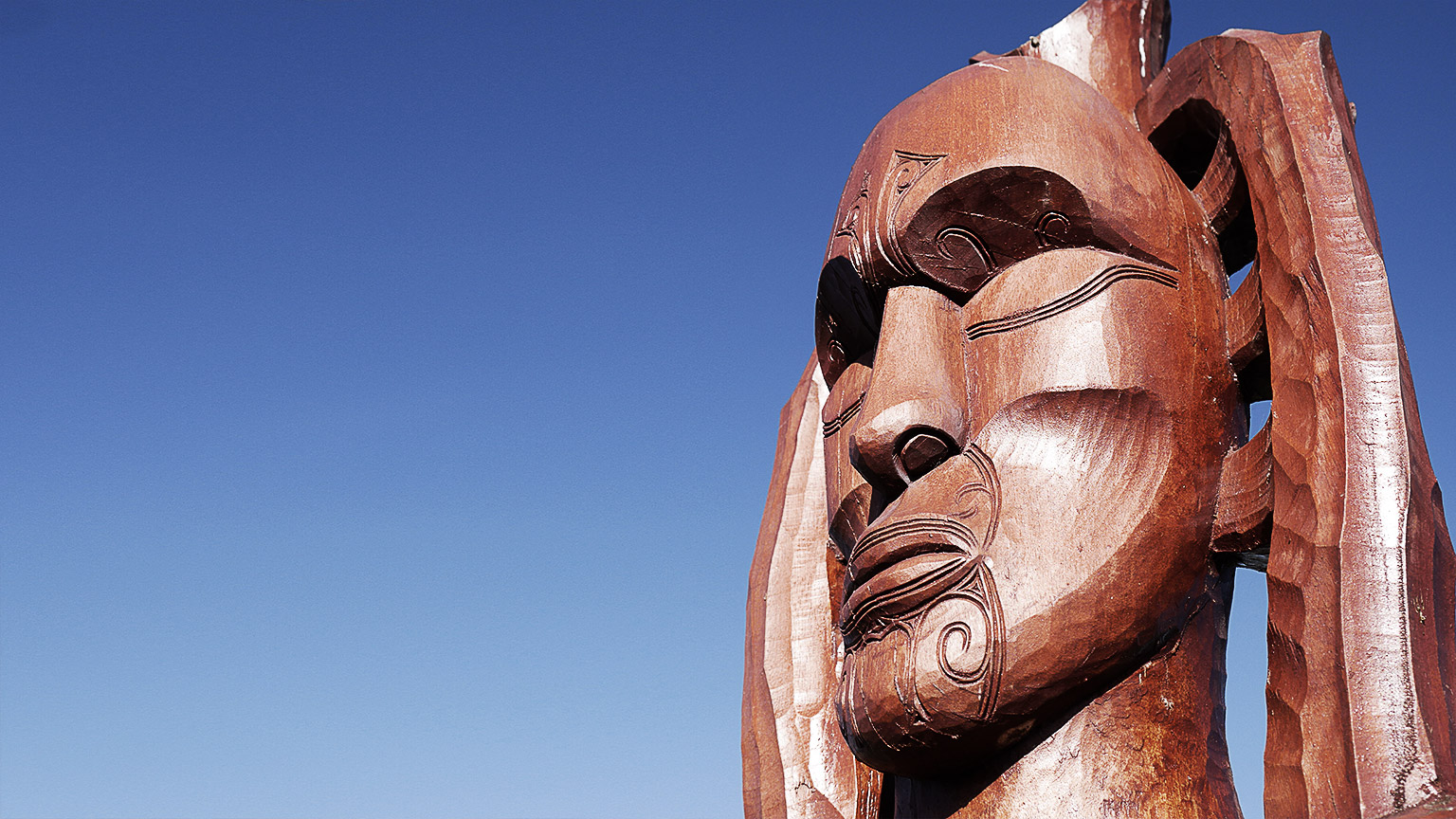The image shows a traditional Māori carving in Waitangi Regional Park, Napier. It shows the Summer Maid — the representation or personification of summer. She looks over the cultivation of kai (foods products, such as the kumara, and the fruits of the forest). In Māori legend, she is one of the two wives of the sun god Rā.
Toitū te kupu, toitū te mana, toitū te whenua. Hold fast to Māori culture; without language, without mana, and without land, the essence of Māori will be lost (Māori whakataukī).
Te Ao Māori denotes the Māori World. While simple in definition, it is rich in meaning and vast in breadth and depth.
Te Ao Māori refers to three key areas:
- Te Reo Māori (Māori language)
Ko taku reo taku ohōho – My language is my awakening
Te Reo Māori literally means ‘the Māori language’, that is, the ancestral language of the tangata whenua of New Zealand (ngā iwi Māori). The Whakatauki (proverb) above illustrates the importance of Te Reo Māori to Ngā Iwi Māori.
This country has two official languages: Māori and New Zealand Sign Language. English is regarded as an unofficial language, that most of the people who live here use to communicate predominantly. Te Reo Māori gained status as an ‘official’ language with the passing of the Māori Language Act in 1987 and is one of the taonga (treasures) guaranteed protection under the Treaty of Waitangi. It also provides this country with a unique language identity from the rest of the world, as this is the only place where Māori is spoken widely. - Tikanga Māori (protocols and customs)
Te Ao Māori, the Māori World, as seen through Māori eyes, Māori perspectives, Māori realities. What is this world, and how can one begin to make sense of it if we are not ‘of it’? Following is a general introduction to this world, for developing your awareness, understanding and appreciation. - Te Tiriti o Waitangi (the Treaty of Waitangi)
Activity – Including Te Ao Māori every day
Embracing Te Ao Māori into our everyday practice is the best way to learn and encourage our tamariki to learn as well.
- Take some time to consider how to incorporate Te Ao Māori into your methods of working with children. Think about why those principles work so well and use the forum to communicate your thoughts as a comment to the appropriate forum post. Review the submissions by your classmates and consider commenting on them as well.
- Create a journal post and share it with your class that lists the activities and actions you will do to bring the principles of Te Ao Māori into your own practice. Review the posts of your classmates for inspiration.
- To complete this task, visit the Ministry of Education's TKI website and look through their Guide to Supporting ākonga Māori for ideas and encouragement.
- Choose a song or activity in Te Reo Māori. Teach someone you know — one of your whānau or friends. This will be practice for when you present a song or activity for your assessment task 2. Once they have learned it (it may take a few weeks, that's okay), write a journal post reflecting on the experience — what you found challenging and what you enjoyed about the process of teaching.
